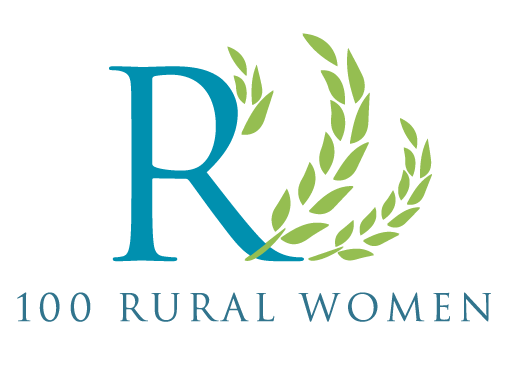“Help, not step, on each other or deplete each other’s energy. But be the light.”
Meet Noreen Thomas, an organic farmer of Doubting Thomas Farms. Noreen grew up in western ND and Montana. Growing up, Noreen was faced with parents that both for a while had major medical issues. Later in life, Noreen attended college with a degree in Food and Nutrition, Microbiology, and Chemistry. She was the 2nd woman to be in the chemistry department at the North Dakota State lab. It was quite novel then and she has been pushing up on the grass ceiling in agriculture ever since.
We are excited to feature her through our Spotlight Profiles.
Question: Can you tell us about your connection to Rural America?
Answer: My name is Noreen Thomas. I’m a farmer. I manage and run the Doubting Thomas farms. So we are in rural Moorhead. Just north of Moorhead probably about 12 miles. Most of my life [was] actually lived in the rural areas. I’ve lived in city, a little bit, but really find a connection with a lot of rural people because knowing your neighbor, knowing your farmer, is very important to me.
I find I am most comfortable in a rural setting. We are on the fifth generation farm. So, my kids are fifth generation here. So there’s a long history. The farms changed a lot with time as well. We do a lot of amazing green, I call it, because the grains are whole germ. They’re wholesome. When people try our rolled oats they can’t believe that its’ rolled oats. What they have in the store is for shelf stability so it’s very dried out. So we find that a lot of customers actually are really happy to connect with the farm and also knowing who grows the food for them.
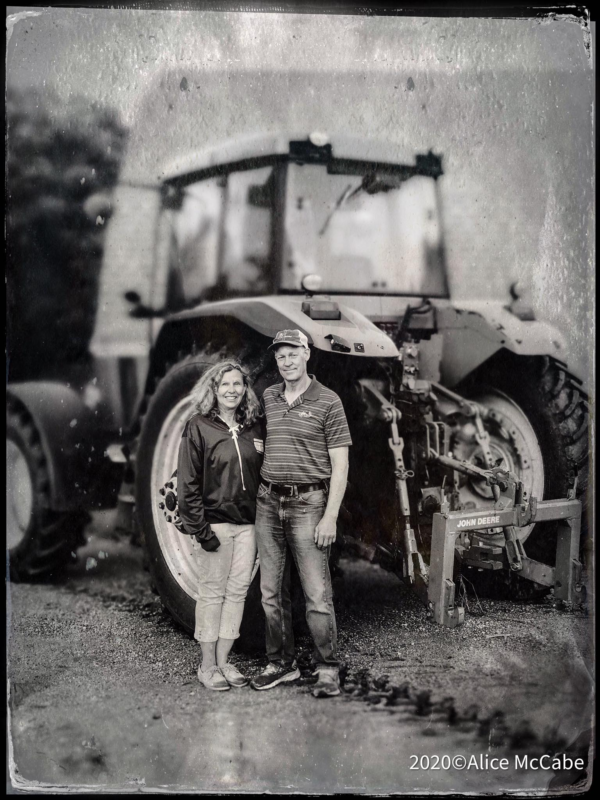
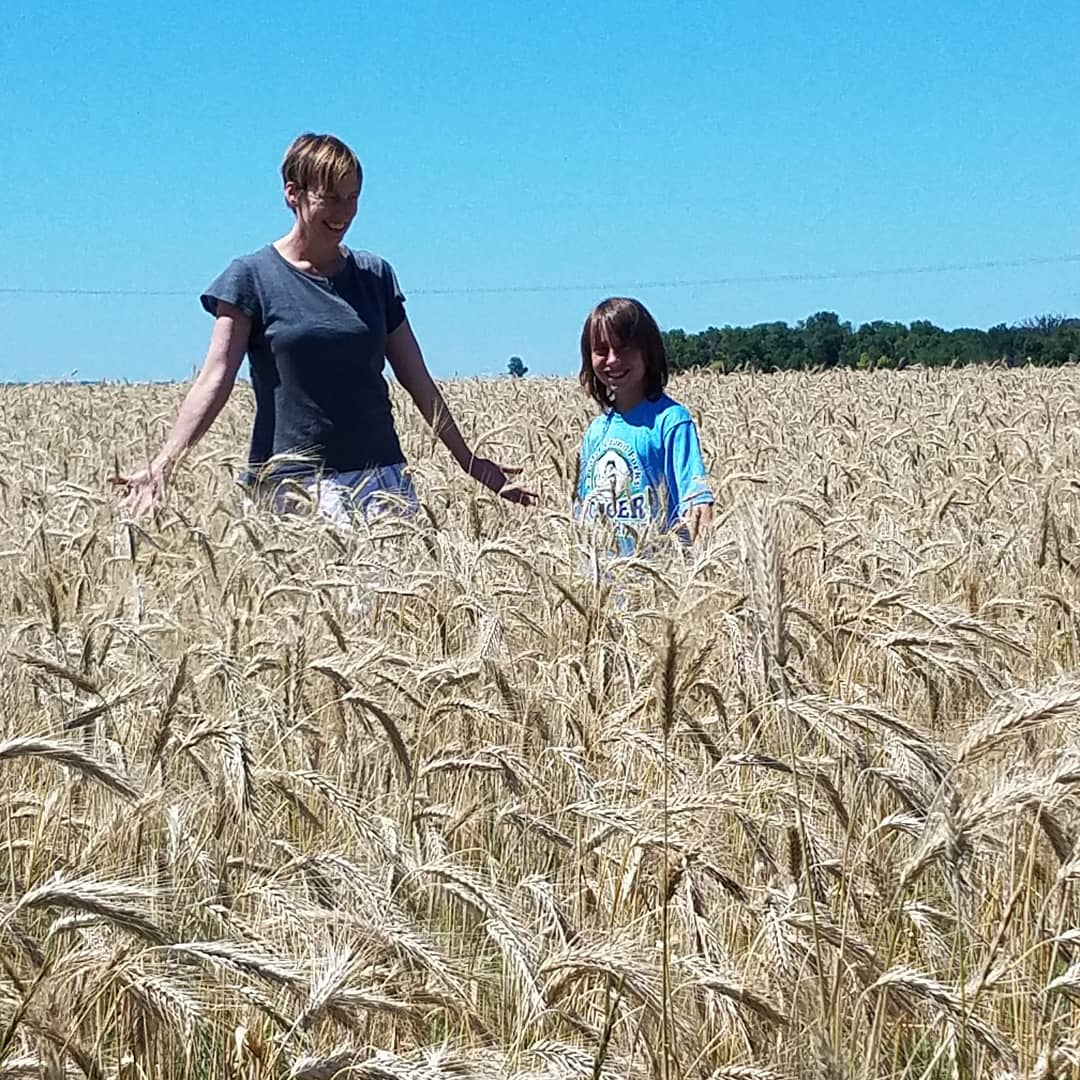
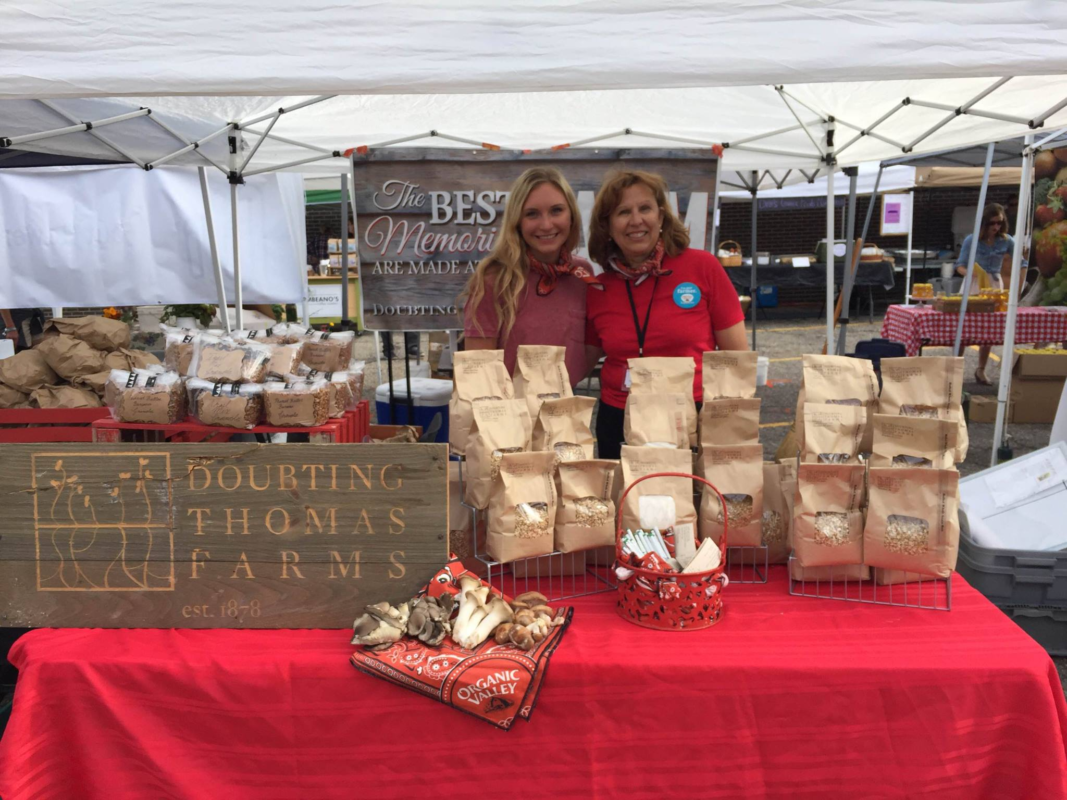
Question: Tells us about a moment you felt discouraged and how you overcame it.
Answer: We have gone through three major floods. One major fire. We’ve had several, you know, pretty rough spots. My sister’s infant was in an accident and killed by a drunk driver. So we’ve kind of had our share of natural disasters as well as some kind of tragedies. I think everyone in life does. To overcome that, you kind of think of how [you can] be creative and how [you can] help serve others as well. In the one flood we were an island and the only way people could get to us was [by] helicopter. So we are two weeks without electricity. We had some water, but we decided to make it a camping experience with our kids because our kids were little.
People watch how you handle crisis. And you can’t divert that sometimes it’s just coming your way. But you go through it. Not, how we’re going to get out of this but how we’re going to get through this. So I think for me it’s just, you know, focusing on the good and focusing on how we can get together through something like that. You really have to have a team effort. Everyone’s pulling and especially when a community is hurting, like with the major floods in Grand Forks and Fargo. Many people left and never came back. So it was very hard, but just realizing that we could also help other families… that lost their farms that maybe they could come work with us.
Providing those opportunities for others and not being so worried because worrying doesn’t help anything. With the flood we helped other farm families with jobs, and my daughter started a charity at 9 years of age called Happy Feet. We can’t change the past or those major
events. We can just learn how to be buoyant through them.
Question: How do you lead and create change in your community and how can your community better support rural women?
Answer: I think by supporting rural women. Keep them in the real places. Otherwise they’ll go to town, you know, major towns like a lot of the youth. So I think being a wise consumer. Also, kind of tapping [into] your local resources. Somebody has always got too much of something that they can share. Or connect.
For instance, you know, we have some greens that don’t make food quality, but make great feed. So, I connected with some people that needed some chicken food. Well it’s not a lot. But to me, I’m just happy to share with them. And it’s that connection, I make. So we’ve lost a lot of that because back when, when the elders would barter for things, or trade, or even share. I think it was a much richer community. So, I think we’re kind of coming back to that a little bit as we have to. In the community’s needs, one thing that I do that’s very near and dear to my heart is that we garden with kids from the homeless shelter.
The kids usually are usually, for behavior, kicked out of a lot of programs. They had toured the farm one time. I thought, you know, these kids really have potential. Somebody really has to believe in them. I thought, well, am I going to wait for this, or am I just going to do it? So, I thought if the community really wants me to do this, they’re going to support me. And they have every bit of the way.
When I needed shoes for the kids, rain boots, because it was raining a lot and kind of muddy, I put it out and a town mom showed up with boxes and boxes and boxes of shoes for the kids that they could wear. Rain boots came. Raincoats came. I also asked the community, I need help with tools, you know, I only have so many because I just volunteer my time for things. And sure enough, here comes the Amazon package with tools for the kids. I was kind of the point that people wanted to… join in, but just looking for ways to help and this was perfect.
So, we have a lot of community support. All of our snacks were paid for, people donated for that. You know, it takes kind of a lot of money to run a decent program. Every bit of it was paid by community members and another group or somebody who stepped up to the plate, when I needed them. Because I have the land, I’ll give my time. I’ll give the seeds, but I just needed that help and they all believed in it. We’re just rocking it. But this year with COVID, not so much. We’re just finding different ways. So to me, being a leader, doesn’t mean you’re always in front of people. Sometimes you just have the idea, and they can plug in. If the community wants to, they will make it go. It’s astronomical the help I’ve had!
Harness those other great women. Commit to spending money for local food, art, etc. If we are 100 of us and we spend 1000 a year that adds up quickly (100,000 a year for some direct impact. And over 10 years 1,000,0000!). Provide platforms like this and really listen. EVERY person has something to add. Help, not step, on each other or deplete each other’s energy. But be the light.
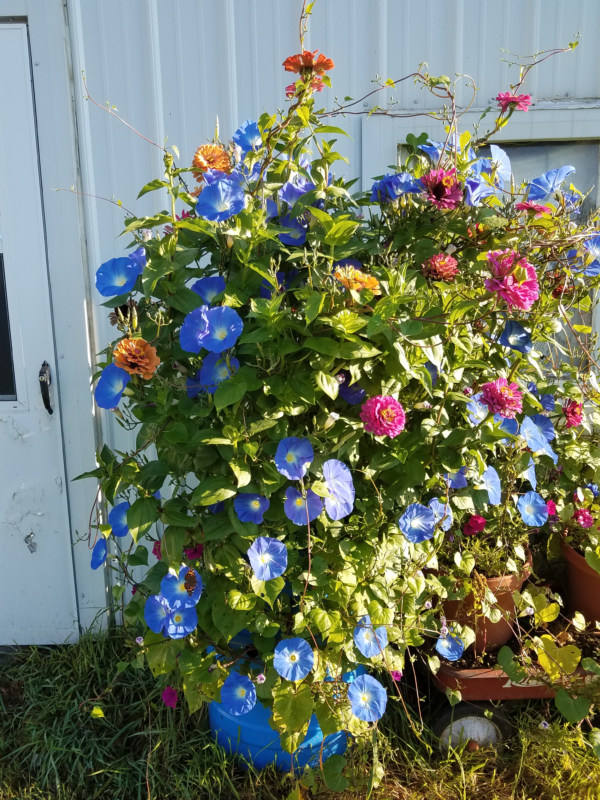
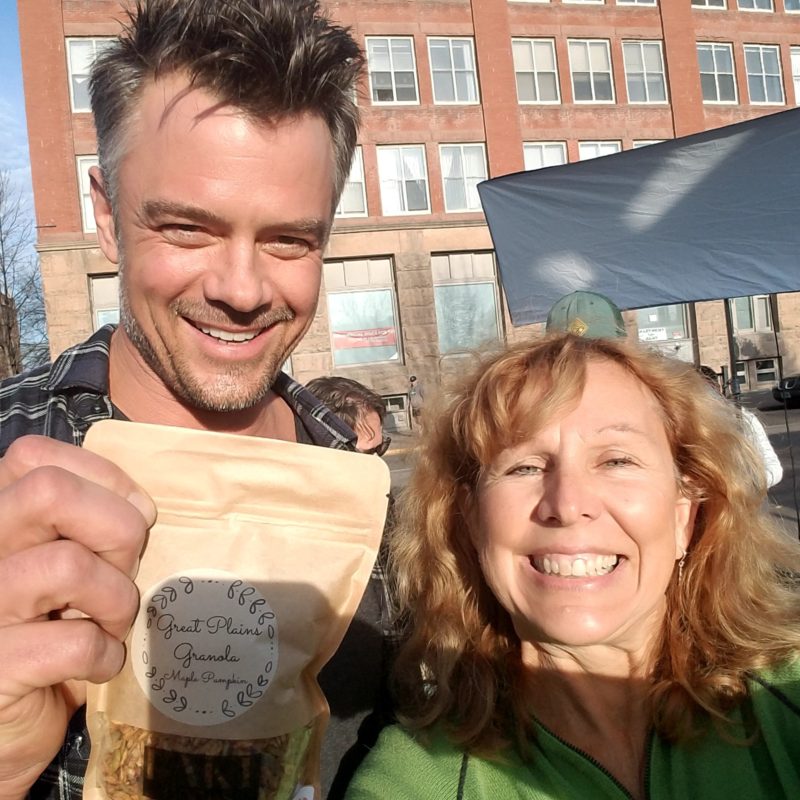
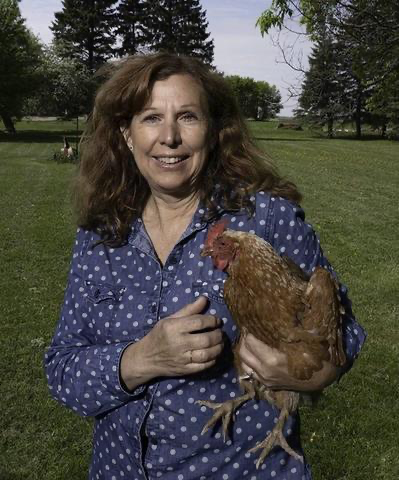
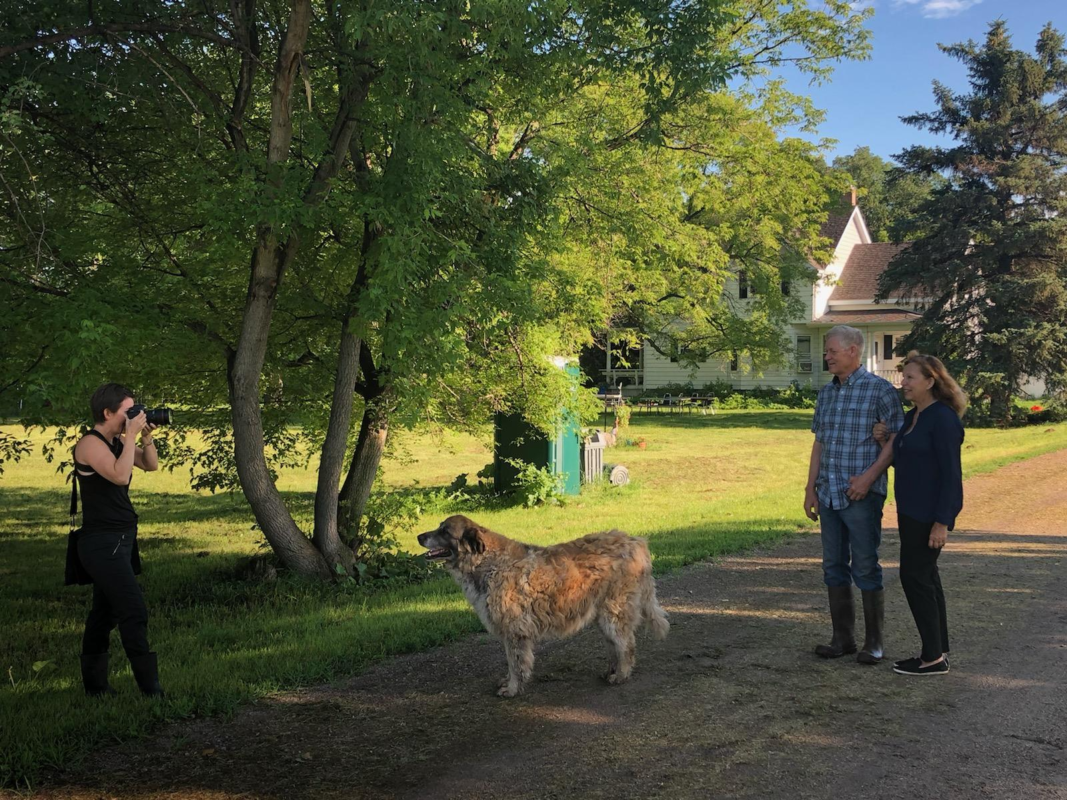
Question: If you could give one piece of advice to your former self, what would that be and why?
Answer: Keep going. Don’t hold yourself back. Be ready that there will be many firsts in your career, awards, etc. and those cruel mean girls are wrong. Take risks, calculated risks, and do what is just enough to scare you.
Not to worry. Not to be such a people pleaser either. To really really just go out there and try it. Sometimes we hold ourselves back and we do that. You don’t realize until you’re older, like, you know, wow, I should really take that risk, a calculated risk, you know, things that are fun too. So I think just taking more of those… not to be so in the safe zone. But also do things that are enough to scare you now and then. You should really do those because it makes life interesting and it’s a great challenge. Like kickboxing! I mean, I thought I should try it, so I did. He said I was the oldest one in the class. But he said, you know, you actually have some potential. I actually thought it was kind of fun. You know, things like that, you should try.
\You should never stop learning. Should never stop that curious child that you were. Most of us are! So I think just to nurture that because sometimes, you know, what fun it is to do paperwork every day? But maybe turn some music on when you’re doing that paperwork. Maybe doing something that you enjoy as a reward. So to my younger self…. definitely be a little bit more go out there and go for it type thing would always be wise. I don’t think anyone’s regretted that. When you’re 85 you won’t say “Oh shoot! I shouldn’t have taken that trip to Norway” or “I wish I had done more”. Instead you’ll say, “Oh boy, I’m glad I did that!”.
Question: Who or what has been your biggest inspiration?
Answer: First would be my college professor advisor who told me to get a couple of degrees. You can switch off the degrees in tight markets. Another person who has inspired me is my good friend’s mom in college. For Thanksgiving I was stuck on campus there and she was so kind, loving, and encouraging. I had never had so much support. It was a little overwhelming. I want to be like her for others. I used to fight for everything to go to college, life, etc. it was like I could just relax at their home. Also, my brother. He is always so funny and has a great outlook. We had each other growing up to look out for because we lived in food insecurity.

